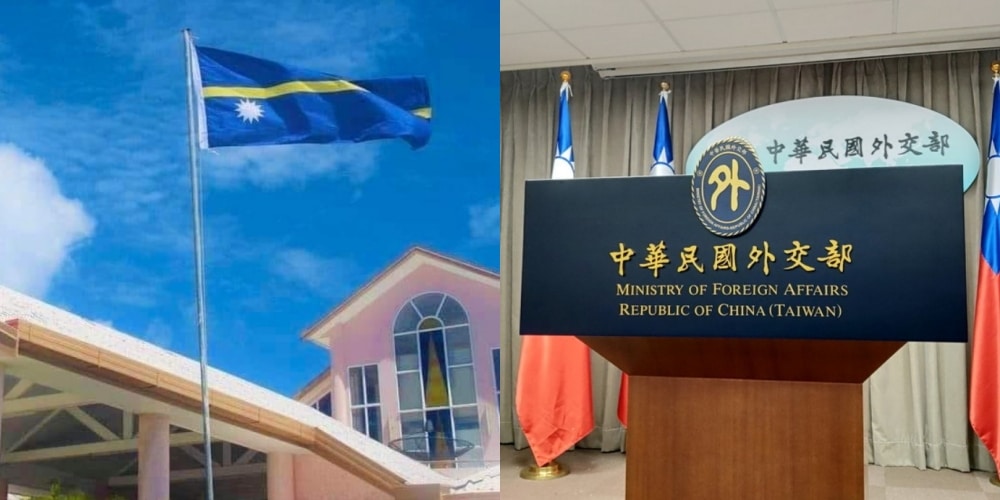TAIWAN: The nation of Nauru, situated in the South Pacific, has officially declared the termination of its diplomatic ties with Taiwan in favour of recognizing China.
On Monday (15 January), the country’s President David Adeang announced this pivotal decision through a national address posted on the government’s official Facebook page, explaining “the Nauru government’s decision to recognise the People’s Republic of China”.
The Nauru government stated that, in the best interests of the country and its people, it is seeking a full resumption of diplomatic relations with China.
Consequently, it will immediately sever diplomatic relations with Taiwan and cease all official exchanges with the latter.
“This change is in no way intended to affect our existing warm relationships with other countries,” the Nauru government statement said.
“Nauru remains a sovereign and independent nation and wants to maintain friendly relations with other countries.”
Taiwan takes Stand against Nauru’s diplomatic shift
In response to Nauru’s decision, the Ministry of Foreign Affairs, Republic of China (Taiwan) announced the termination of diplomatic relations with Nauru to safeguard its national dignity, according to Taiwan’s Deputy Foreign Minister Tien Chung-kwang.
“With deep regret, we announce the termination of diplomatic relations with Nauru, after being made aware that the government of Nauru was preparing to break ties with Taiwan on the basis of Beijing’s distorted interpretation of UN Resolution 2758 and the one China principle.”
Taiwan’s presidential office attributed the switch to China’s prolonged suppression of Taiwan’s diplomatic space, asserting that it cannot hinder the will of Taiwan’s people to engage globally.
Tien accused China of influencing Nauru with economic incentives, contending that China actively reached out to Nauru politicians for the switch.
“Beijing has long been making overtures to politicians in Nauru and other allies, trying to poach them with promises of aid.”
“Beijing has chosen its timing as a form of retribution in the wake of Taiwan’s presidential and legislative elections with this attempt to isolate Taiwan from the international community. ”
“Taiwan remains unbowed and continues to work with our allies and like-minded partners as a force for good in the world, to uphold regional peace and stability,” stated MOFA in a statement issued on Monday.
Taiwan faces diplomatic isolation amidst China’s growing influence
In the aftermath of Nauru’s unprecedented diplomatic move aligning with Beijing, Taiwan finds itself grappling with heightened geopolitical strains.
The island nation, grappling with the loss of its first diplomatic ally following the recent presidential election won by William Lai Ching-te, now contends with a shrinking circle of supporters recognizing its sovereignty.
China, seizing the opportunity, expresses appreciation for Nauru’s decision and extends an invitation to forge a new chapter in bilateral relations, rooted in its one-China principle.
As the diplomatic tug-of-war between Taiwan and China intensifies in the Pacific region, Nauru’s decision leaves Taiwan with a mere dozen allies acknowledging its sovereign status.
Notable among these are Guatemala, Paraguay, Palau, the Marshall Islands, and Eswatini, standing as a testament to the ongoing battle for alliances through economic incentives and developmental aid.
In March last year, Honduras severed its relationship with Taiwan and established formal diplomatic relations with China.
This diplomatic turbulence reflects a historical pattern, as Taiwan had severed ties with Nauru in 2002, only to reconcile in 2005 when Nauru switched back to Taiwan.
The island microstate, with its 12,500-strong population, remains one of the world’s smallest countries, situated approximately 4,000 km northeast of Sydney, Australia.
As the geopolitical chessboard evolves, Taiwan faces an intricate challenge in preserving its global standing amidst China’s expanding influence in the Pacific.



